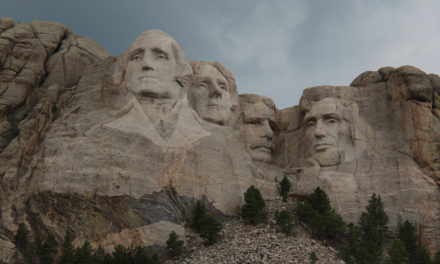Christmastime is my favorite season by far. I’ll never get tired of Christmas music, hot chocolate and the anticipation of the best day of the year. Despite my passion for the holiday season, there was a time when I almost lost my love of Christmas and my faith.
Sadly, a new poll of millennials shows I may not have been alone. A recent article from FiveThirtyEight examined how millennials are leaving religion, and not coming back. Four in ten millennials identify as religiously unaffiliated, and they have no plans to change.
Previous generations left religion in their younger years but returned to their faith as they got married and had children. But for the millennial generation, many have left for good.
While there is a plethora of reasons why millennials may leave their faith, from declining morals to secular spouses, the reason I almost left was because of my atheist biology teacher.
At age 15, I thought I had my life and faith figured out. I was soon to realize that I didn’t have the faintest clue about either.
In high school, I’d sit with my classmates at our oversized black tables that sat 10 students in a row. Rather than learn biology, for lengthy portions of class time our teacher would talk about how science had replaced any need for God.
He would “educate” us by explaining how faith wasn’t important since it was opposed to science and reason. Being rather quiet and knowing he could outwit my 15-year-old self, I didn’t dare challenge his attempted destruction of my beliefs.
I don’t believe my experience is uncommon among students in public schools these days.
Despite the onslaught of attacks on my faith I experience in high school, there was one main reason I remained a Christian: Apologetics.
For those who may think apologetics is a fancy way to say, “I’m sorry,” it’s actually the discipline of defending religion through argumentation, reason, history and logic.
Through apologetics, I learned how to answer the questions my Biology teacher posed. I also discovered that there were good reasons to believe in the existence of God.
The works of modern-day Christian thinkers like William Lane Craig, Ravi Zacharias and Alvin Plantinga empowered me to maintain my faith. They taught me that I had good evidence for my beliefs.
Indeed, one of my favorite books that I read in high school was “The Case for a Creator” by Lee Strobel. Strobel used to be an atheist. As a former journalist for the Chicago Tribune, he became a Christian after travelling around the country to interview top scholars and investigate the evidence for the Christian faith.
It was science and reason that led Strobel to believe in God, and studying those same things helped me to keep my faith as well.
Using science, history and logic, I’m confident people of faith have the upper hand in explaining the reasons for their beliefs.
Though some Christians may assert that science isn’t important, and you only need faith, I couldn’t disagree more strongly. I kept my faith precisely because I took studying science seriously. To quote Nacho Libre, one of my favorite movies, “I believe in science.” I just also happen to believe that science leads one to believe in God.
The famed Christian author C.S. Lewis said, “Christianity, if false, is of no importance, and, if true, of infinite importance. The one thing it cannot be is moderately important.”
This December let’s remember that Christmas is so much more that a commercial holiday with twinkling lights, sugar cookies and Santa Clause.
It’s a commemoration of the historically verifiable event of the birth of Jesus Christ.
And don’t forget, there’s good evidence to celebrate the real reason for the season.






